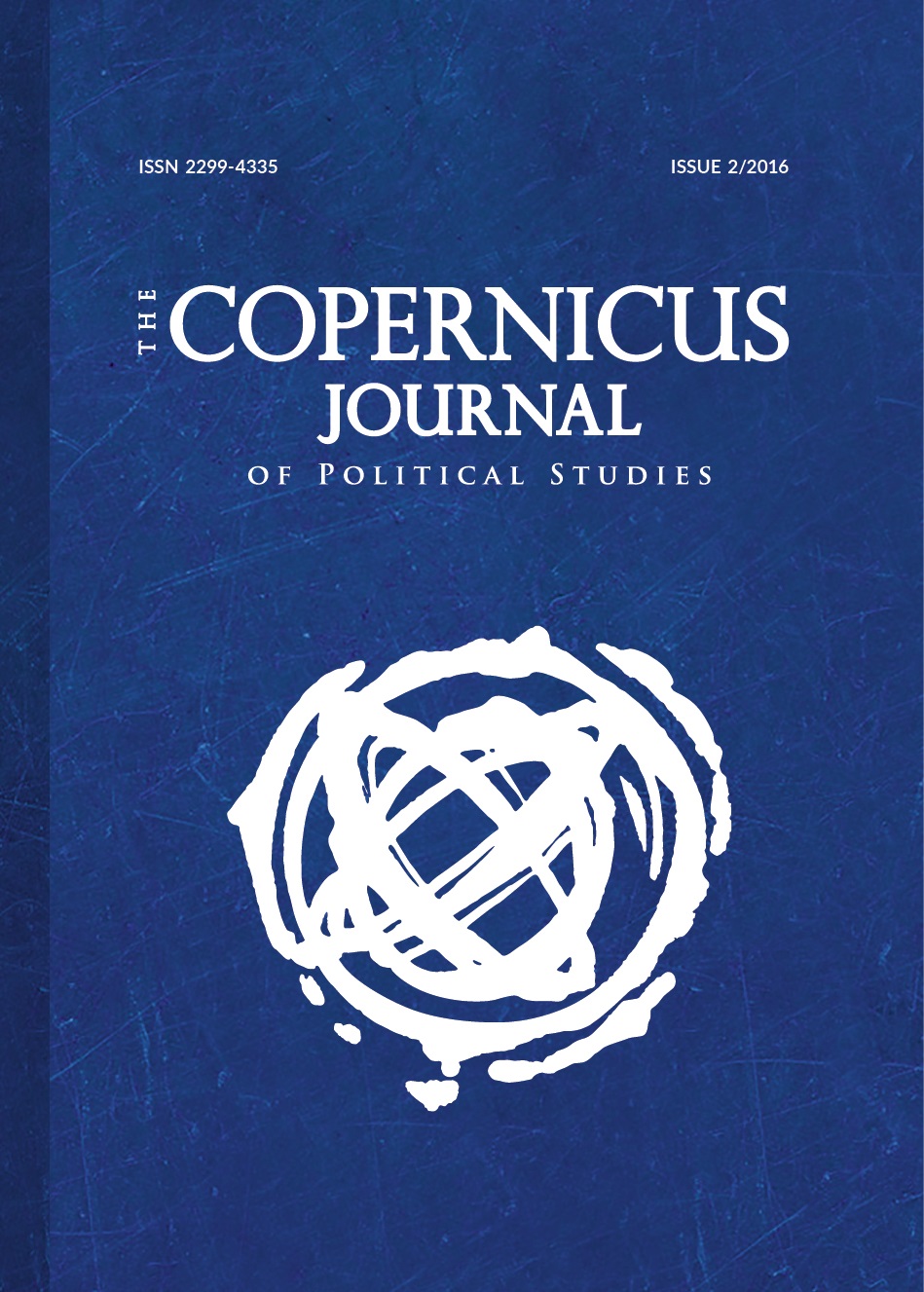IMPORTANCE OF GRANTING TO THE CONSTITUTIONAL COURT OF GEORGIA THE AUTHORITY OF CONSIDERING THE “REALISTIC” CONSTITUTIONAL APPEALS
DOI:
https://doi.org/10.12775/CJPS.2016.012Keywords
Constitutional court, constitutional submission, Georgia, individual constitutional appealAbstract
On the basis of the current legislation in relation to the issues of the second chapter of the Constitution (Human rights), the Constitutional Court of Georgia considers only the issue of the constitutionality of the content of normative acts and considers the appeals as inadmissible where the violation of rights is derived not from the content of the norm but its misuse in practice. This approach extends as well to those cases when the violation of a person’s rights is caused by incorrect interpretation of the norm by the court and improper use in the process of legal correlation. The Georgian Legislation does not grant to the Constitutional Court the authority to consider the indicated issue. The indicated issue is a legal problem to the extent that the initial point of the democratic states is to defend the human rights and correspondingly, the primary goal of the constitutional control should be the restoration of the human rights violated by the state structures (authorities). However, the recent precedential law gives us a possibility to make the conclusion that the General Courts in a number of cases define the law contrary to the Constitution, and the Constitutional law is powerless to restore the right of the person whose right was violated by the action of the judge of the court. The aim of this article is to analyze advantages and disadvantages of real-life constitutional appeals and prove importance of granting to the Constitutional Court of Georgia the authority of considering the “realistic” constitutional appeals.
References
Supreme Court. (2007). Georgia. November 28, 2006, N40765/02. Retrieved from http://www.supremecourt.ge/files/upload-file/pdf/apostoli.pdf
Zaalishvili, N. (n/d). The international practice of the Constitutional Control of decisions of the General Courts and perspectives of its establishment in Georgia. Retrieved from http://www.parliament.ge/files/legal_issues/publications/saerto_sasamartloebi.pdf
Zoidze, B. (2007). The Constitutional Control and the order of values in Georgia. Tbilisi.
Kvetenadze, N. (2013). The Constitutional Control of decisions of the General Courts – the effective mechanism of defense of the Human’s rights. The Students’ Legal Journal, 90-98.
Kochlamazashvili, B. (2010). Legal Protection of the Constitution. Bona Kauz.
Menabde, V. (2010). A paradigm of specific control in the constitutionalism. The Constitutional and International Mechanisms for Defense of Human Rights. 123-147.
Meskhishvili, Q. (2012). Appeal to the Constitutional Court as a constitutional legal means for defense of rights. The modern Constitutional Justice. 147-169.
Constitutional Court of Georgia. (n/d). Retrieved from http://constcourt.ge/ge/legal-acts/statistics
Constitutional Court of Georgia. (2006). Decision N1/1/357 of the Georgian Constitutional Court of 31 May 2006, in the case “The citizens of Georgia Tamaz Kilanava, Nugzar Kandelaki, Manana Nasaridze, Madona Ghibradze and Lali Archvadze vs. the Parliament of Georgia”.
Constitutional Court of Georgia. (2008). Judgment N1/2/440 from 4 April 2008 in the case “Anatoli Kozlovski vs. the Parliament of Georgia”.
Constitutional Court of Georgia. (2008a). Judgment of the Georgian Constitutional Court of 4 December 2008 in the case “The citizen of Georgia Akaki Mikadze vs. the City Council of Tbilisi”.
Constitutional Court of Georgia. (2009). Decision N1/1/428,447,459 of the Georgian Constitutional Court of 13 May 2009, in the case “The Public Defender, citizen of Georgia Elguja Sabauri and the citizen of Russian Federation Zviad Mania vs. the Parliament of Georgia”.
Constitutional Court of Georgia. (2012). Decision N 3/1/512 of the Georgian Constitutional Court of 26 June 2012, in the case “The citizen of Denmark Heike Cromqvist vs. the Parliament of Georgia”.
Constitutional Court of Georgia. (2014). Decision of the Georgian Constitutional Court in the case N 3/1/574 “Citizen of Georgia, Giorgi Ugulava vs. the Parliament of Georgia”.
Constitutional Court of Georgia. (2014a). Decision of the Georgian Constitutional Court, from 24 December 2014 in the case N 577: “The citizen of Georgia Vakhushti Menabde vs. the member of the Parliament of Georgia”.
Constitutional Court of Georgia. (2015). Decision of the Georgian Constitutional Court of 31July 2015, N 2/3/630 in the case: “The citizen of Georgia Tina Bejhitashvili vs. the Parliament of Georgia”.
Constitutional Court of Georgia. (2015a). Judgment of the Georgian Constitutional Court of 25 November 2015 for the constitutial submission of Tbilisi Appellation Court on the comstitutionality of the second sentence of Article 112 of the Georgian Law “On Public Service”.
Urushadze, T. (2013). The problematic issues connected with the constitutional submission to the General Court. Student’s Legal Journal. 113-119.
Sharashidze, M. (2010). Perspectives of granting to the Constitutional Court of Georgia the authority of considering the real-life constitutional appeals, the constitutional and international mechanisms of the defence of human rights. 209-218.
Chkheidze, G. (1999). The problems of constitutional control in Georgia. Retrieved from http://www.nplg.gov.ge/gsdl/cgi-bin/library.exe
Khubua, G., & Trauti, I. (2001). The constitutional justice in Germany. Tbilisi: GTZ.
Qaldani, T., & Chkheidze, G. (2000). The reality of the Constitutional Court of Georgia and perspectives of development.
Phirtskhalashvili, A. (n/d). Expert Conclusion about the case N 678, 719. On the cases of the first part of Article 423 of the Code of Civil Proceedings of Georgia “About the constitutional Court” of organic law the Article 20 and the first and 10th paragraphs 10th.
Downloads
Published
How to Cite
Issue
Section
Stats
Number of views and downloads: 450
Number of citations: 0



